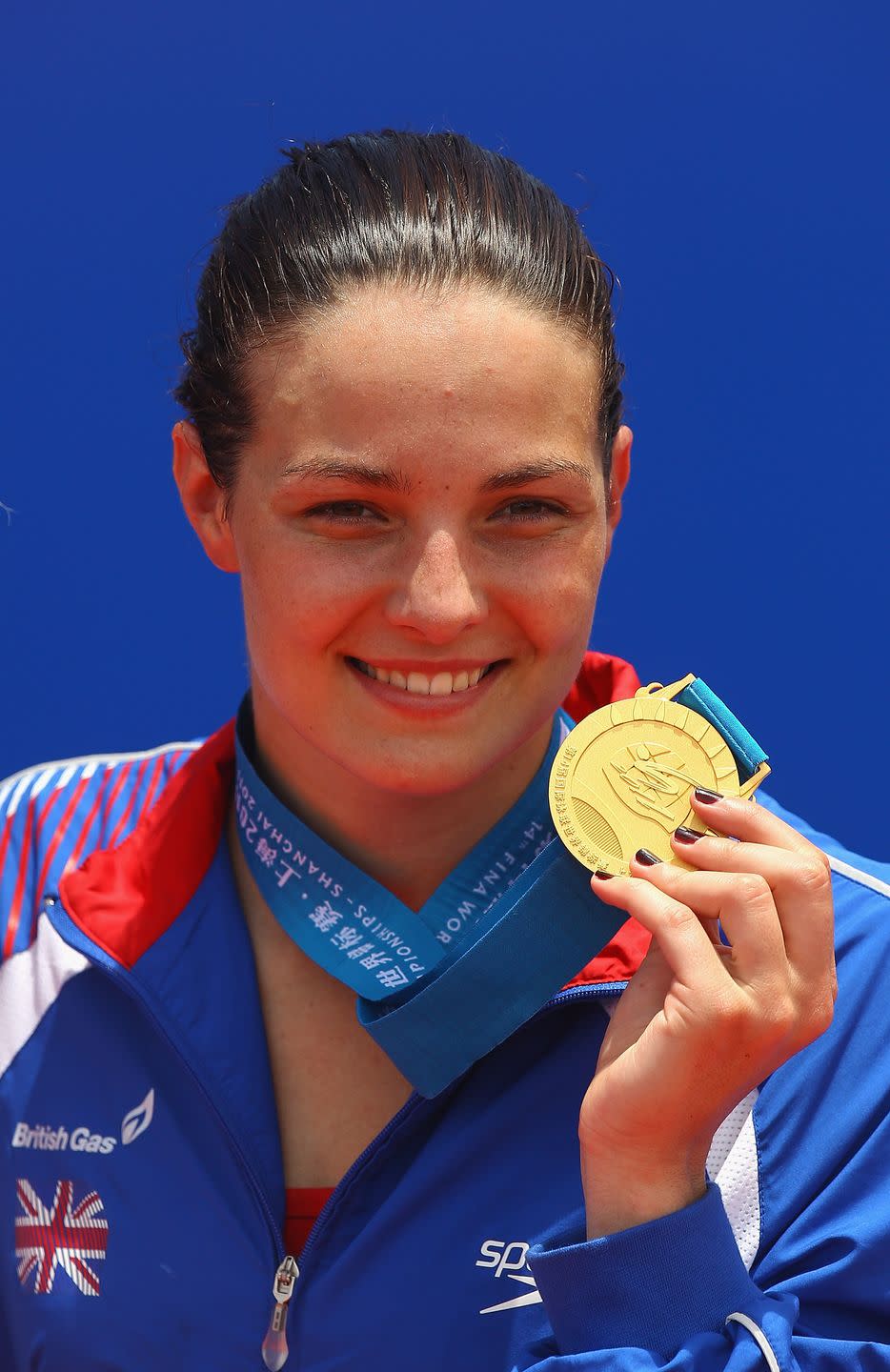Is Winning a Silver or Bronze Medal Really Not Worth Celebrating? We Asked a Former Olympian
What’s a medal really worth? That’s the question that’s been debated all week after the former morning television presenter and journalist Piers Morgan wrote on Twitter, "Real sporting champions don't celebrate coming 3rd" and “If you don’t win gold, you’ve lost. Sorry (not sorry) if this simple cold hard fact hurts everyone’s delicate little feelings.”
We’ve all seen footballers removing runners-up medals moments after they're placed around their necks and, even at Tokyo 2020, we’ve seen athletes, such as Team GB’s Bradly Sinden, who are unable to hide their disappointment at winning ‘just’ a silver medal. So is Morgan right? Are silver and bronze medals really not worth as much as a medal coated in gold? And is the adage ‘second place is the first loser’ really true?
Not according to former Olympic swimmer Keri-anne Payne who spoke exclusively to Men’s Health UK about her own silver medal triumph at the Beijing Olympics in 2008. Back then, Payne came into her event, the 10k open water final, ranked eighth, but still managed to walk away with a silver medal.
"I was so happy," Payne tells Men’s Health UK. "It was like a moment of validation that I was good at this and all the training and the sacrifice I had put in had been worth it.
"I think almost everyone dreams of winning an Olympic medal, but thinking about the colour or even getting one beforehand is a recipe for stress and pressure," she adds. "It's about focusing on the performance you have trained for not the medal you might win."
Payne isn’t the only athlete to disagree with Morgan’s hot take. Canadian figure skater Meaghan Duhamel wrote in response to him, "I feel pretty comfortable with my bronze medal thank you very much. ‘Winning’ means different things to different people," while, London 2012 women’s Olympic football team player and current head coach of the San Diego NWSL team, Casey Stoney wrote, "Why are people giving Piers Morgan air time. He has no clue what is takes to be an elite sports person."
🥉 I feel pretty comfortable with my bronze medal thank you very much. “Winning” means different things to different people! https://t.co/OAtG74o6ej
— Meagan Duhamel (@mhjd_85) July 27, 2021
In the interests of fair reportage, it’s important that we say not all athletes agree with Payne, Duhamel and Stoney. Morgan himself has cited a Telegraph article written by James Cracknell, where the double Olympic gold medal-winning rower wrote "Suddenly a bronze or a silver won’t get you on a newspaper front page, the lead bulletin on the sports news on BBC or extend that commercial endorsement – it may sound brutal, but gold is now the only currency that counts."

Payne certainly wouldn't agree with that, and interestingly, neither does scientific research, which says that value isn't derived from the medal a person achieves, it comes from how that person subjectively views their achievement.
In 1995, psychologists Victoria Medvec and Thomas Gilovich of Cornell University and Scott Madey of the University of Toledo produced an analysis of athletes’ emotional reactions to winning bronze and silver medals at the 1992 Summer Olympics in Barcelona. The researchers observed the reactions of medal winners at both the conclusion of their events and when being awarded their medals and discovered that bronze medallists tended to be happier than silver medallists.
The authors put this down to the fact that while silver medallists were still bummed about not winning gold, for bronze medallists leaving the Games without a medal was more likely than leaving with gold, so they were content with what they got.
So are bronze and silver medals worth less than gold? Not if science is to be believed, and as Payne says, the value of medalling at the Olympics – regardless of the colour – isn’t just about personal achievement either.
"I didn't compete at the Olympic Games to win over everyone on social media," says Payne. "I was there for me and I’m incredibly proud of my performance and the legacy that medal, along with my team mate Cassie Patten with her bronze, has created for the sport in the UK.
"That is one of the things the Olympic Games is about, inspiring a nation."
You Might Also Like

 Yahoo Sport
Yahoo Sport 





































